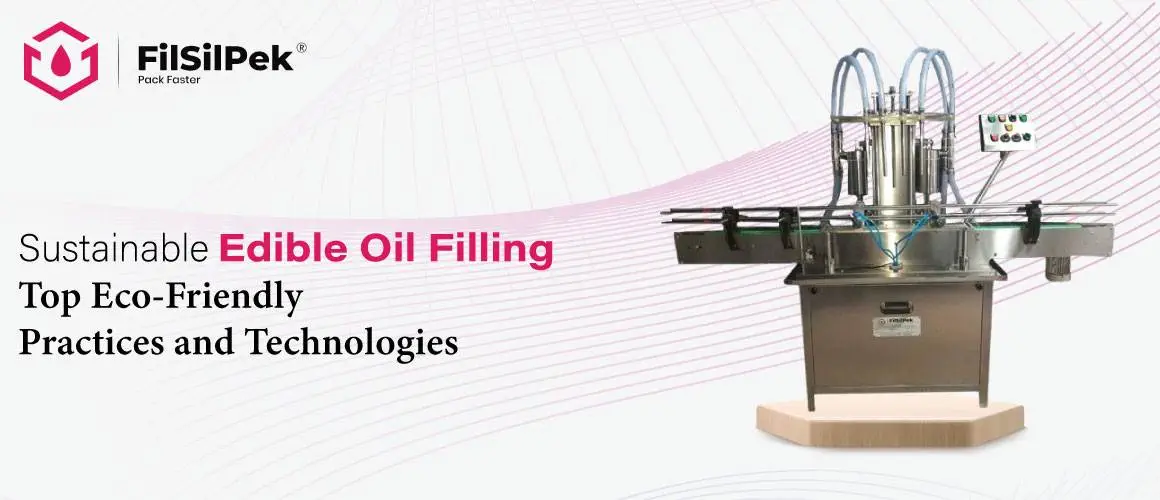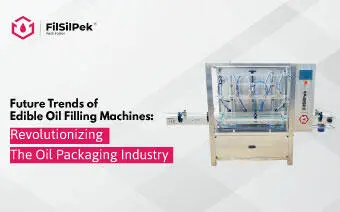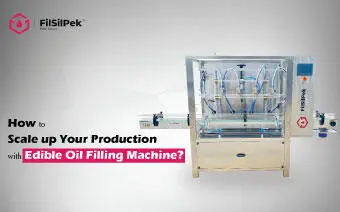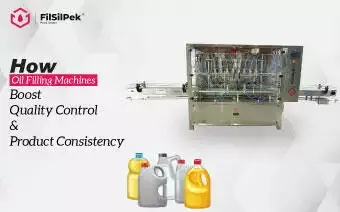Sustainable Edible Oil Filling: Top Eco-Friendly Practices and Technologies
Sustainability in edible oil filling is an evolving field that focuses on minimising environmental impact throughout the production and packaging processes. As global awareness of environmental issues grows, the edible oil industry is embracing innovative practices and technologies to reduce its carbon footprint. This shift towards sustainability encompasses everything from energy-efficient machinery to eco-friendly packaging solutions.
In this blog, we’ll explore how these eco-friendly practices are reshaping the industry. We’ll put focus into the technologies making a difference and discuss why these changes are crucial for a greener future.
What is Sustainability in Edible Oil Filling?
Sustainability in edible oil filling refers to practices and technologies aimed at reducing the environmental impact of the oil production and packaging processes. This concept is all about making sure that the way we produce, handle, and package edible oil is as eco-friendly as possible. It involves using resources more efficiently, cutting down on waste, and minimising pollution to protect our planet for future generations.
It includes the adoption of energy-efficient technologies that use less power and reduce carbon emissions. Moving ahead it also considers innovative waste management practices that recycle materials and minimise by-products. With all these it emphasises the use of sustainable packaging materials and processes that lower the environmental footprint. With such practices, the edible oil industry aims to balance the need for high-quality products with a commitment to environmental stewardship.
Why sustainability matters in edible oil filling?
Sustainability in edible oil filling matters because it helps protect our environment while still delivering the products we need. With introduction and implementation of eco-friendly practices and technologies, we reduce waste, cut down on pollution, and save resources like energy and water. This means that the oil we use every day comes from processes that are kinder to the planet.
Adopting these green practices is crucial for ensuring that we don’t harm the environment as we meet our needs. It’s about making sure future generations can enjoy the same resources and quality of life that we do. So, when you choose products from companies that prioritise sustainability, you’re supporting a cleaner, greener future for everyone.
Eco-Friendly Practices in Edible Oil Filling
- Energy Efficiency: One of the first steps towards sustainability is reducing energy consumption. Modern filling machines are designed to be more energy-efficient, using less power while maintaining high performance. This means they consume less electricity and help lower carbon emissions.
- Recycling and Waste Management: In the past, waste from the filling process often ended up in landfills. Now, many companies are adopting recycling programs to manage waste more effectively. This includes recycling packaging materials and reusing any by-products from the oil filling process. It’s a win-win for both the environment and the business.
- Eco-Friendly Packaging: Packaging plays a huge role in sustainability. Many companies are shifting to recyclable or biodegradable materials for their oil containers. This helps reduce plastic waste and encourages the use of materials that are better for the planet.
- Water Conservation: The oil filling process often involves cleaning and maintenance, which can use a lot of water. New technologies are focusing on reducing water usage and improving water recycling systems. This helps conserve a vital resource and reduces the environmental impact.
- Reduced Emissions: Advanced technology is also helping to cut down on emissions. Modern equipment is designed to minimise the release of harmful gases and pollutants, making the filling process cleaner and greener.
Technologies Leading the Eco-friendly practices
- Automated Filling Systems: Automation isn’t just about efficiency—it’s also about reducing waste. Automated filling systems are precise and accurate, which means less spillage and waste during the filling process. This technology helps ensure that every drop of oil is used efficiently.
- Smart Sensors and IoT: The Internet of Things (IoT) and smart sensors are revolutionising the industry. These technologies provide real-time data on various parameters, allowing for better monitoring and control of the filling process. This helps in making adjustments that can lead to more sustainable operations.
- Energy Management Systems: These systems help track and manage energy use more effectively. By monitoring energy consumption, businesses can identify areas where they can cut down on usage and switch to more sustainable energy sources.
- Green Chemistry: Some companies are exploring green chemistry for cleaning and maintenance processes. This involves using non-toxic, biodegradable chemicals that are safer for the environment and reduce the impact of the cleaning process.
Wrapping it up
Sustainability in edible oil filling is key to a greener future, cutting down on waste and protecting our planet. By choosing eco-friendly practices, we’re making sure our oil is not only top-quality but also kind to the environment.
Want to join the green movement? Reach out to us at [email protected] to learn more about our sustainable solutions and how we can help you make a difference!
Future Trends of Edible Oil Filling Machines: Revolutionizing the Oil Packaging Industry
The edible oil industry stands as a vital sector in the global food market, catering to a wide array of culinary and dietary needs. As the demand for edible oil…
How to Scale up Your Production with Edible Oil Filling Machine?
The pursuit of unmatched precision in the optimization of production processes is unrelenting in the complex world of edible oil manufacture. Modern solutions are required to address…
How Oil Filling Machines Boost Quality Control and Product Consistency
In the dynamic world of oil manufacturing, where every drop carries the promise of quality and consistency, the pursuit of excellence is unrelenting. The stakes are high – from meeting stringent…



